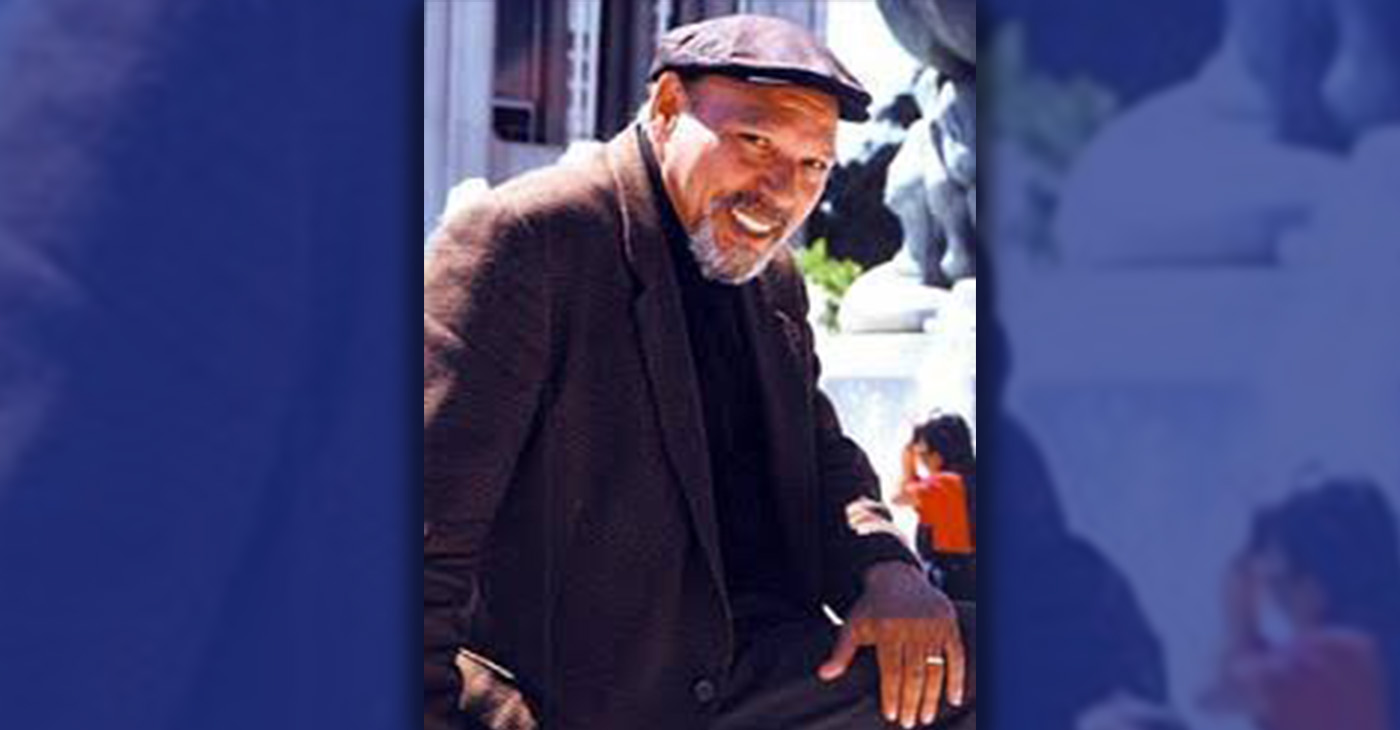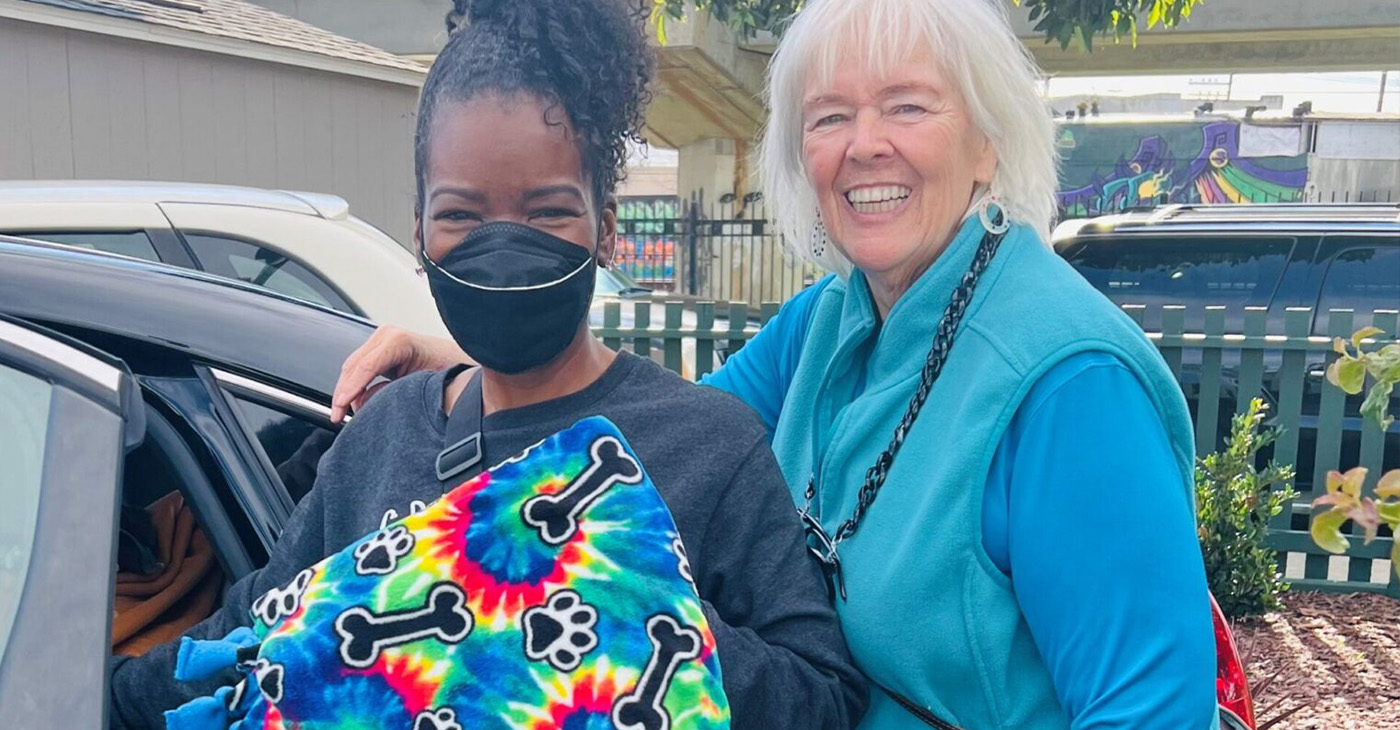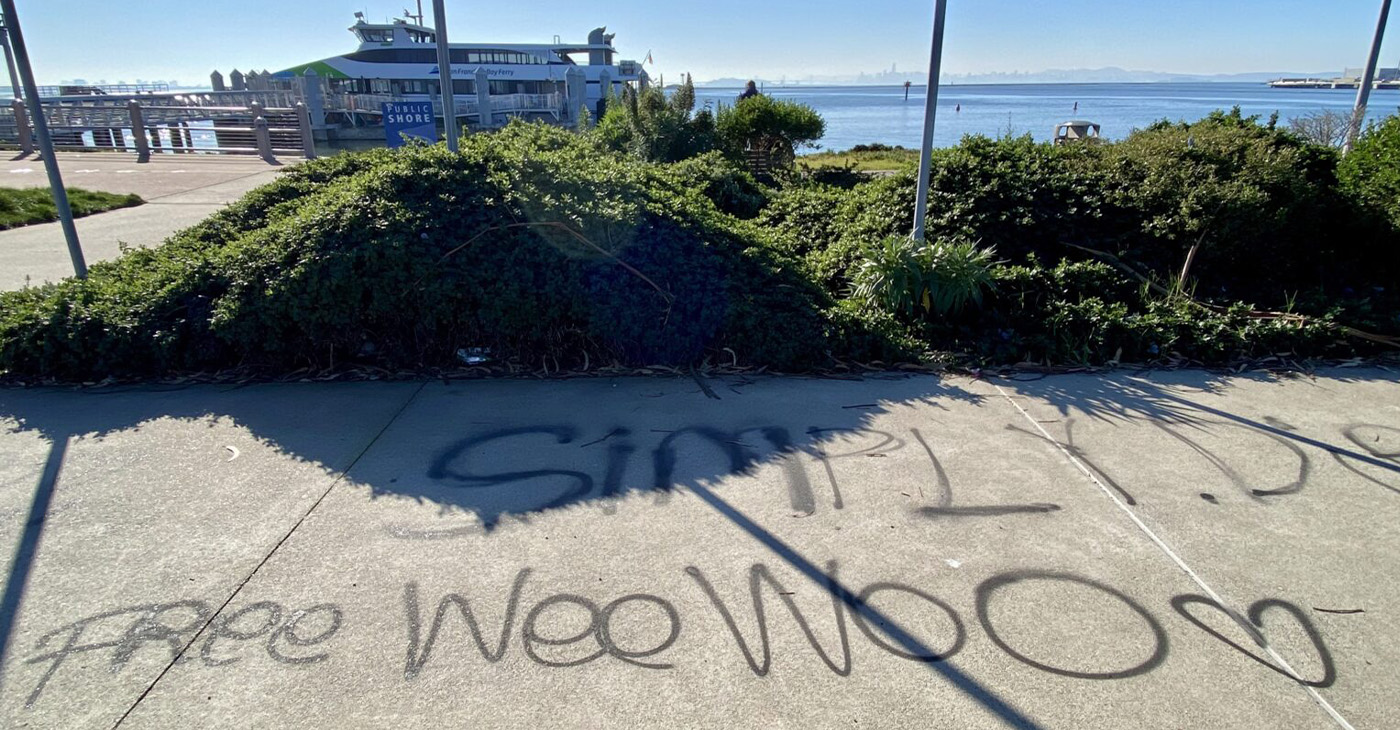Art
Phenomenal Woman’ Maya Angelou Monument Unveiled at San Francisco Main Library
In a joyful community celebration attended by over 200 people, including Mayor London Breed, the highly anticipated ‘Portrait of a Phenomenal Woman’ monument to Dr. Maya Angelou was unveiled at the San Francisco Main Library on Sept. 19. Oakland-based artist Lava Thomas created the 9-foot bronze and stone monument in the form of a book featuring a portrait and quotes from the celebrated author, poet, civil rights activist and former San Francisco resident.

By Linda Parker Pennington
In a joyful community celebration attended by over 200 people, including Mayor London Breed, the highly anticipated ‘Portrait of a Phenomenal Woman’ monument to Dr. Maya Angelou was unveiled at the San Francisco Main Library on Sept. 19.
Oakland-based artist Lava Thomas created the 9-foot bronze and stone monument in the form of a book featuring a portrait and quotes from the celebrated author, poet, civil rights activist and former San Francisco resident.
The work was commissioned by the San Francisco Arts Commission in response to legislation passed in 2018 by San Francisco’s Board of Supervisors, requiring at least 30% female representation in the public realm.
Attending the unveiling were Angelou’s grandson, Elliott Jones, social advocate, philanthropist, and board member of the Dr. Maya Angelou Foundation; and Rosa Johnson, Angelou’s niece and family archivist, who spoke about the historic unveiling of this first public monument portraying a Black woman in San Francisco’s history.
Activism
Griot Theater Company Presents August Wilson’s Work at Annual Oratorical Featuring Black Authors
The performance explores the legacy of Pulitzer Prize-winning playwright August Wilson whose 10-play Century Cycle chronicles the African American experience across the 20th century, with each play set in a different decade. “Half a Century” journeys through the final five plays of this monumental cycle, bringing Wilson’s richly woven stories to life in a way that celebrates history, resilience, and the human spirit.

By Godfrey Lee
Griot Theater Company will present their Fifth Annual Oratorical with August Wilson’s “Half a Century,” at the Belrose on 1415 Fifth Ave., in San Rafael near the San Rafael Public Library.
The performance explores the legacy of Pulitzer Prize-winning playwright August Wilson whose 10-play Century Cycle chronicles the African American experience across the 20th century, with each play set in a different decade. “Half a Century” journeys through the final five plays of this monumental cycle, bringing Wilson’s richly woven stories to life in a way that celebrates history, resilience, and the human spirit.
Previous performance highlighting essential Black American authors included Maya Angelou, James Baldwin, and Lorraine Hansberry with Langston Hughes.
The play will be performed at 3:00. p.m. on Feb. 20, 21, 22, 27, and 28 at 7:00 p.m., and on Feb. 23 at 3:00 p.m.
For more information, go to griottheatercompany.squarespace.com/productions-v2
Activism
MLK Day of Service Volunteers Make Blankets and Art for Locals in Need
“Everyone has an opportunity to participate,” said Glenda Roberts, kinship support care program manager at CCYSB. “Our nonprofit organization and participants recognize how important it is to give back to the community and this is serving. As Dr. Martin Luther King, Jr. stated, ‘Everybody can be great…because anybody can serve.’”

By Kathy Chouteau
The Richmond Standard
The Contra Costa Youth Service Bureau (CCYSB) and Bethlehem Missionary Baptist Church (BMBC) are collaborating with a team of volunteers for a Dr. Martin Luther King, Jr. Day of Service, Monday, Jan. 20 that will wrap the community’s most vulnerable people in warm blankets and provide them with an uplifting gift of art.
Volunteers will kick off their activities at BMBC at 11 a.m., making blankets for the unhoused people served by the Greater Richmond Interfaith Program (GRIP) and art for those in convalescence in Richmond.
Others will get to work preparing a lunch of chili, salad, a veggie tray, and water for participants, offered courtesy of CCYSB, while supplies last.
“Everyone has an opportunity to participate,” said Glenda Roberts, kinship support care program manager at CCYSB. “Our nonprofit organization and participants recognize how important it is to give back to the community and this is serving. As Dr. Martin Luther King, Jr. stated, ‘Everybody can be great…because anybody can serve.’”
“People of all ages are welcome to participate in the MLK Day of Service,” said Roberts. Volunteers can RSVP via phone to Glenda Roberts at 510-215-4670, ext. 125.
CCYSB Boardmember Jackie Marston and her friends donated the materials and supplies to make the blankets and art projects. The nonprofit is also providing the day’s complimentary lunch, as well as employees to volunteer, under the direction of CCYSB Executive Director Marena Brown.
BMBC, led by Rev. Dr. Carole McKindley-Alvarez, is providing the facility for the event and volunteers from the church, which is located at 684 Juliga Woods St. in Richmond.
Located in Richmond, CCYSB is a nonprofit youth advocacy organization that serves eligible children, youth, and low-income families with a variety of wraparound services so they can thrive. Programs include academic achievement, youth mentorship, truancy prevention and direct response.
Art
Vandalism at Richmond Ferry Terminal Saddens Residents
Residents have been lamenting the destruction online. Ellen Seskin posted photos of the vandalism to the Facebook group, Everybody’s Richmond, on Jan. 12, saying she encountered it while out on a walk. “It was on the sidewalk, the street, the doors to the ferry, even in the art installation and the ‘stone’ benches,” she said. “I reported it but knowing how slow they are about getting things done — I just know that the longer you leave graffiti, the more likely they are to spray it again.”

The Richmond Standard
“This is why we can’t have nice things,” stated the post on NextDoor.
The post referenced images of graffiti at the Richmond Ferry Terminal. Not just on the terminal, but also on public artwork, on trail signs, on public benches and the boardwalk.
On Wednesday, the Standard stopped by to see it for ourselves. The good news was that it appears the graffiti on the terminal and on the artwork, called Changing Tide, have been cleaned for the most part. But graffiti remained abundant in the area around the relatively new ferry terminal, which opened to the public just six years ago.
Graffiti artists tagged benches and the boardwalk. Cars that had done doughnuts in the street marked the cul-de-sac just outside the historic Craneway Pavilion.
A ferry worker told us the graffiti had been there since before he started working for the ferry service about a week ago.
A member of the Army Corps of Engineers who did not want to be named in this report called the scene “sad,” as “they’d done such a nice job fixing it up.”
“It’s sad that all this money has been spent and hoodlums just don’t care and are destroying stuff,” he said.
It wasn’t immediately clear how soon the graffiti would be removed. The Standard reported the graffiti to the city’s graffiti abatement hotline. We were prompted to leave a message reporting the address and location of the graffiti.
Residents have been lamenting the destruction online. Ellen Seskin posted photos of the vandalism to the Facebook group, Everybody’s Richmond, on Jan. 12, saying she encountered it while out on a walk.
“It was on the sidewalk, the street, the doors to the ferry, even in the art installation and the ‘stone’ benches,” she said. “I reported it but knowing how slow they are about getting things done — I just know that the longer you leave graffiti, the more likely they are to spray it again.”
In the comment section responding to Seskin’s post, local attorney Daniel Butt questioned why there aren’t cameras in the area.
On Nextdoor, one resident suggested searching to see if the tags match any accounts on Instagram, hoping to identify the perpetrator.
On its website, the City of Richmond says residents should graffiti immediately call Public Works graffiti removal and/or Code Enforcement at 510-965-4905.
Kathy Chouteau contributed to this report.
-

 Activism4 weeks ago
Activism4 weeks agoOakland Post Endorses Barbara Lee
-

 Activism4 weeks ago
Activism4 weeks agoOakland Post: Week of April 2 – 8, 2025
-

 #NNPA BlackPress3 weeks ago
#NNPA BlackPress3 weeks agoTrump Profits, Black America Pays the Price
-

 Activism2 weeks ago
Activism2 weeks agoOakland Post: Week of April 9 – 15, 2025
-

 #NNPA BlackPress3 weeks ago
#NNPA BlackPress3 weeks agoHarriet Tubman Scrubbed; DEI Dismantled
-

 #NNPA BlackPress3 weeks ago
#NNPA BlackPress3 weeks agoTrump Targets a Slavery Removal from the National Museum of African-American History and Culture
-

 #NNPA BlackPress3 weeks ago
#NNPA BlackPress3 weeks agoLawmakers Greenlight Reparations Study for Descendants of Enslaved Marylanders
-

 #NNPA BlackPress3 weeks ago
#NNPA BlackPress3 weeks agoNew York Stands Firm Against Trump Administration’s Order to Abandon Diversity in Schools

























































